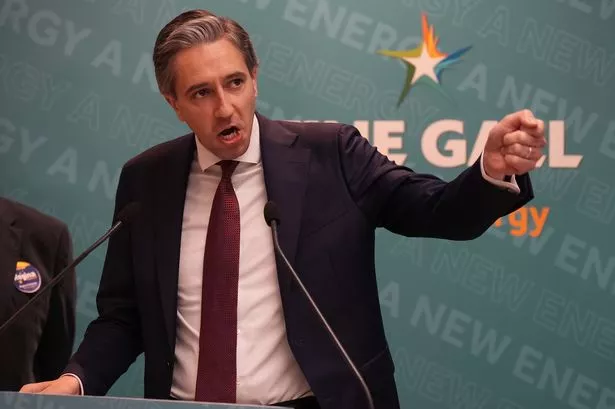Ireland’s election points to a continuation of the current political landscape. Fine Gael and Fianna Fáil are expected to stay in power, but Taoiseach Simon Harris may face a challenge to his leadership. His personal support has declined, according to exit polls.
A close contest
Vote counting is ongoing, but early results show a tight race between Fine Gael, Fianna Fáil, and Sinn Féin. No party is likely to win enough seats for a majority. Both Fine Gael and Fianna Fáil have ruled out forming a coalition with Sinn Féin. This makes another partnership between the two incumbent parties the most likely outcome.
Simon Harris told RTE:
“It’s far too hard to call at this stage as to who will come out as the largest party. What is clear is that Fine Gael, Fianna Fáil and Sinn Féin will be tightly bunched when it comes to final seats.”
Fianna Fáil leader Micheál Martin said his party might outperform predictions. However, he warned that the fragmented vote would make forming a government difficult.
Harris called the election earlier than planned, aiming to build on Fine Gael’s rising support. However, his campaign faced issues. A viral video showed him dismissing concerns raised by a disability care worker, leading to public criticism.
Analyst Lisa Keenan from Trinity College Dublin commented:
“Fine Gael may be a little bit disappointed that they didn’t make more gains. But given the campaign gaffes, Harris is also likely to be somewhat relieved. We’ve seen a stabilisation there.”
Leadership preferences and key issues
Exit polls suggest Harris is less popular than his main rivals for the role of Taoiseach. Only 27% of voters prefer him, compared to 35% for Micheál Martin and 34% for Sinn Féin’s Mary Lou McDonald.
Sinn Féin has gained support among young voters. They focused on issues like housing and homelessness, which are priorities for many. New data on election day showed record homelessness figures, with nearly 15,000 people affected.
McDonald’s leadership has helped Sinn Féin gain broader support. However, without a coalition option with Fine Gael or Fianna Fáil, their path to power is unclear.
Fianna Fáil looks set to gain seats, improving on its 2020 performance. If this happens, Martin could have more influence in coalition talks and may reclaim the Taoiseach position.
Even together, Fine Gael and Fianna Fáil may fall short of the 88 seats needed for a majority in the 174-seat parliament. The Green Party, their previous coalition partner, is expected to lose seats.
Smaller parties like the Social Democrats and Labour may gain seats and could become part of the next coalition.
Next steps
Vote counting will continue through the weekend. Final results are expected on Sunday. After that, government formation talks will likely take weeks.
This election shows the growing influence of Sinn Féin. However, the overall political landscape may not change significantly, with Fine Gael and Fianna Fáil likely to remain in control.
